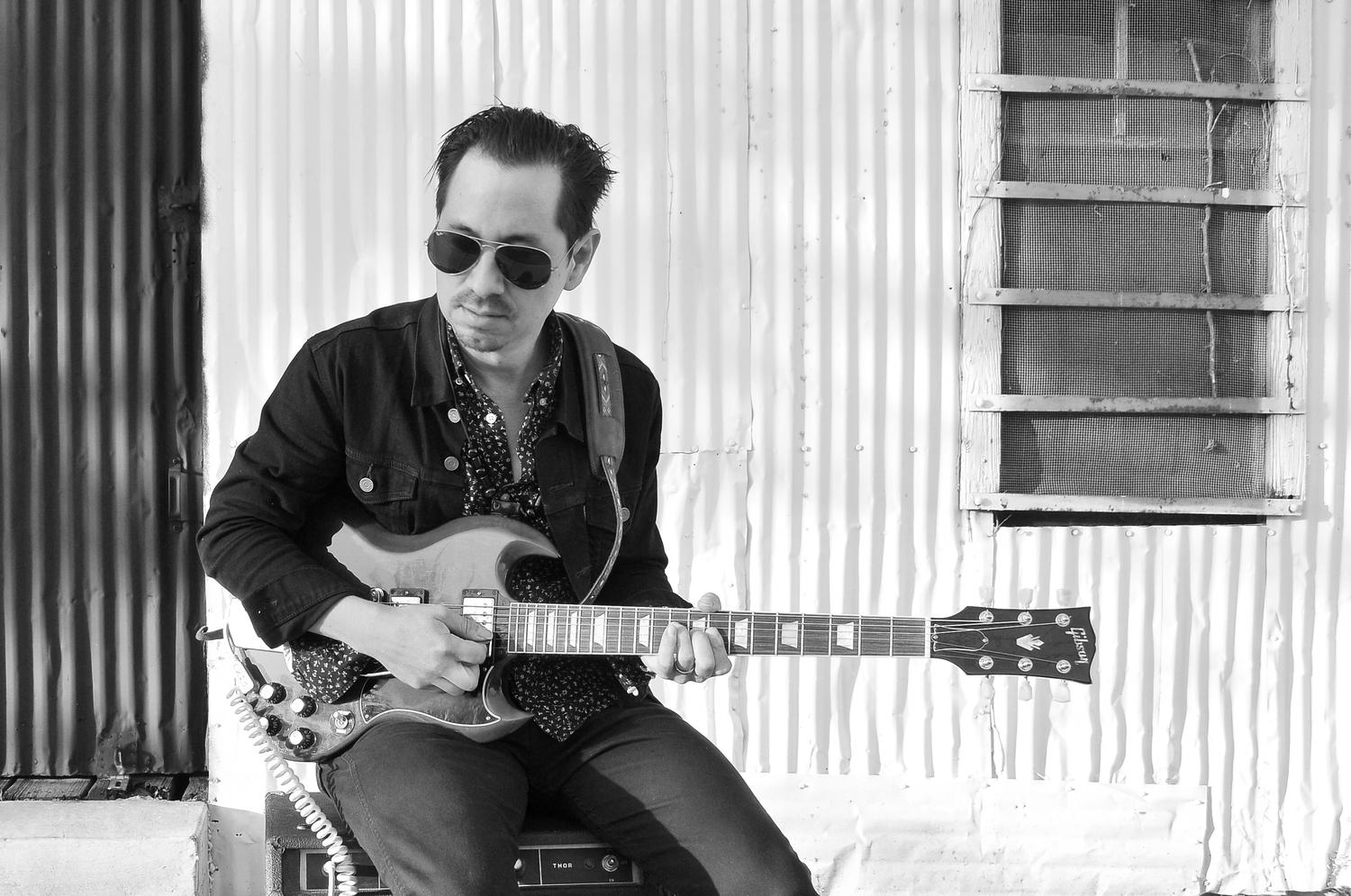Musician Adrian Quesada grew up in the border town of Laredo, Texas.
Immigration is a hot topic in this year's presidential race.
Donald Trump on Wednesday outlined his 10-point plan on illegal immigration, which includes an operation to deport "criminal aliens" currently living in the United States.
Democratic candidate Hilary Clinton, on the other hand, has taken a softer approach by supporting a path to citizenship for the millions who are already here.
No matter which side you're on, it's just a reminder of just how close we are to Mexico.
"Nothing seems foreign to you because there's a whole other country five minutes away," says Adrian Quesada, a musician who grew up in Laredo, Texas, near the border with Mexico.
"I think the thing that makes Laredo unique is the fact that it's a border town, so you grow up between two cultures. It's pretty common for people to have family on both sides of the border like I did and just go back and forth," Quesada says.
That meant Quesada spoke English and Spanish growing up. And being bilingual has had an effect on his music too.
Now living in Austin, he's had numerous bands, including his latest, a Latin rock group called The Echocentrics.
oembed://https%3A//www.youtube.com/watch%3Fv%3Dw5uM-q6t7Xo
With all the heated rhetoric out there about migration, Quesada just wants to get back to a time when he says the whole border issue wasn't so loaded.
"You know I'm definitely a little bit of an idealist, but I'm also realistic in the fact that I do think we're at a point where there clearly has to be a separation between the countries," he says.
In the past, the border "was just another little place where you dropped a few coins to go to the other country," Quesada says. "It wasn't like a huge ordeal and it didn't seem like you were transported to this other place."
